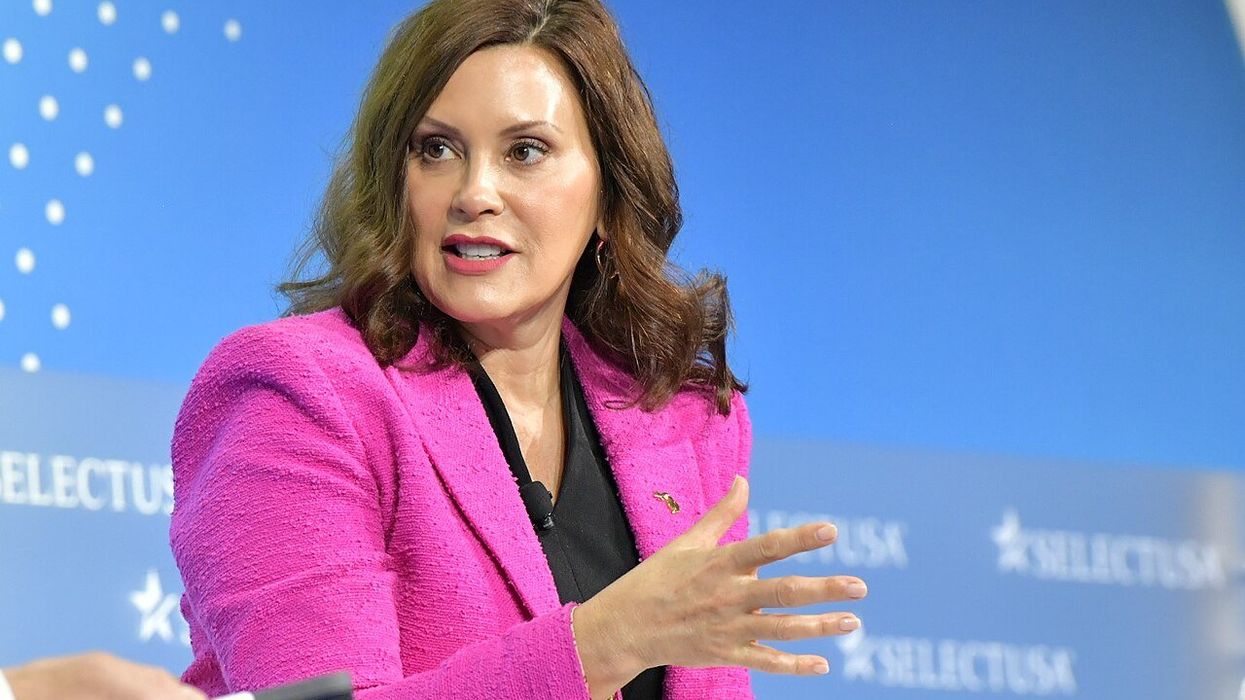Tariffs 'exacerbate the problem': Whitmer rips Trump for damage to Michigan economy

Michigan Gov. Gretchen Whitmer in May 2023 (Creative Commons)
September 16, 2025 | 07:39PM ETEconomy
Tariffs lodged by President Donald Trump would have an outsized impact on Michigan’s economic standing, particularly its manufacturing and automotive sectors, Gov. Gretchen Whitmer said in an economic speech Tuesday.
“Michigan understands the negative consequences of unfettered trade with other countries that don’t play fair,” Whitmer said. “Decades of offshoring and outsourcing shipped hundreds of thousands of good-paying, middle-class jobs overseas and shuttered hundreds of factories. The ripple effects were devastating. Fewer people, empty main streets, crumbling roads, and shrinking schools.”
The speech, delivered at Michigan’s Heritage Hall in Lansing, had two goals: addressing the state’s budget impasse and detailing the damage Trump’s tariffs would continue to have on the state.
Although Whitmer acknowledged that the state had little control over the import taxes, she said it was irresponsible for the federal government to “capriciously swing the tariff hammer at every problem.”“I hear this from employers in Michigan and in every meeting on the investment mission to Japan and Germany,” Whitmer said. “Companies that have invested in Michigan for decades brought up uncertainty caused by our national tariff policy. They want to invest in Michigan, but tariffs are keeping them on the sidelines. Uncertainty breeds paralysis. And paralysis costs jobs.”
Whitmer’s address came following a weeklong stint in Japan on a venture to secure job deals. The Democrat has made trips like this since she started her second term in 2023.
The governor said no industry is more at risk from tariffs than automakers and suppliers, with 1.2 million Michiganders employed in the automotive supply chain. That equates to one in five Michigan jobs.
Whitmer toughens budget talk against Michigan Republicans with shutdown looming
“Canada and Mexico are our biggest auto trading partners, with car parts crossing both borders an average of eight times,” she said. “But now, additional 25% tariffs have been slapped on foreign-made auto parts, including those from Canada and Mexico. Even higher tariffs on steel and aluminum, two materials crucial for building cars, exacerbate the problem. ”
Uncertainty, Whitmer said, has been crippling manufacturing from making investments. It was in that vein that Whitmer also hinted at new policies for job creation in Michigan, noting that the state needs new tools to leverage its workforce in manufacturing to compete with other states and nations.
The governor outlined three goals toward that aim: make it easier to build factories in Michigan, create and retain jobs to run them, and make it easier to incentivize innovation.
A key tool Michigan has tried in the last few years was in the form of economic and monetary incentives for companies, which have mixed results, especially in the face of Trump’s tariffs.
Whitmer seemingly acknowledged the difficulty of using incentives or other proverbial carrots to spur innovation and business growth on Tuesday.
“No tool is perfect, but we have to do something to deliver more wins for Michigan, because competition is fierce,” she said.